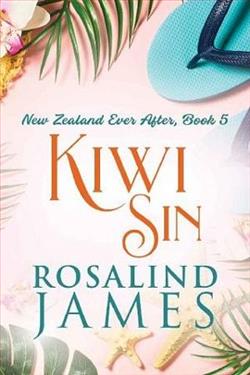
Kiwi Sin
by Rosalind James
If it’s better to marry than to burn, I was in trouble.
When you walk out of a cult with a driving license and the clothes on your back, you can face some challenges. How does a cooker work, and what do you cook on it? Is microwave pizza actually food, and how many times can you eat sausages before you never want to smell them again? And what do people actually put in all those bathroom drawers?
And, finally, how do you sort out the good and the bad of the place you’ve left and the place you’ve found and make your own way? How do you start over when half your family wants to recreate Mount Zion right here in Dunedin, New Zealand, and the other half wants to forget it?
And when you find the one and only woman you’ll ever want to marry, what if everybody says no?
I’d been named after the archangel Gabriel. I was meant to know the truth and announce it to the world. So far, I wasn’t even coming close.
.
Read
Kiwi Sin on http://kissnovel.net
Martial Peak Reviews
Rosalind James' novel Kiwi Sin is a compelling exploration of identity, belonging, and the struggle to reconcile one's past with the present. Set against the backdrop of Dunedin, New Zealand, the story follows Gabriel, a young man who has recently left a cult and is grappling with the complexities of the outside world. The narrative is a poignant reflection on the challenges of starting anew, especially when one's past is as all-consuming as Gabriel's.
One of the most striking aspects of Kiwi Sin is its exploration of personal freedom and self-discovery. Gabriel's journey is not just about learning how to operate a cooker or figuring out what constitutes a proper meal; it is about understanding who he is outside the confines of the cult. James skillfully portrays Gabriel's internal conflict as he navigates the unfamiliar terrain of modern life. The author uses these seemingly mundane challenges to highlight the broader theme of self-reliance and the courage it takes to forge one's own path.
The character development in Kiwi Sin is both nuanced and profound. Gabriel is a deeply relatable protagonist, not because many readers have experienced life in a cult, but because his struggles with identity and belonging are universal. His character arc is a testament to the resilience of the human spirit. As he learns to distinguish between the good and the bad of his past and present, readers are invited to reflect on their own lives and the influences that shape them.
James does an exceptional job of portraying the tension between Gabriel's desire to move forward and the pull of his past. The novel delves into the complexities of familial relationships, particularly the divide between those who wish to recreate their past life and those who want to leave it behind. This conflict is central to the narrative and adds depth to Gabriel's journey. It raises important questions about loyalty, tradition, and the courage it takes to break away from what is familiar.
Another significant theme in Kiwi Sin is the notion of love and acceptance. Gabriel's relationship with the woman he wishes to marry is fraught with challenges, not least because of the disapproval he faces from those around him. This subplot adds an emotional layer to the story, emphasizing the idea that love is a powerful motivator for change and growth. James handles this aspect of the narrative with sensitivity and insight, making it one of the most compelling elements of the book.
The setting of Dunedin, New Zealand, provides a rich backdrop for the story. James' descriptions of the city and its surroundings are vivid and evocative, adding a sense of place that enhances the narrative. The contrast between the open, expansive world Gabriel finds himself in and the closed, restrictive environment of the cult is stark and effectively underscores the novel's themes of freedom and exploration.
In terms of style, James' writing is both engaging and accessible. Her prose is clear and concise, yet it carries an emotional weight that resonates with readers. The dialogue is authentic and serves to deepen the reader's understanding of the characters and their motivations. James' ability to weave humor into the narrative, particularly through Gabriel's often humorous observations about modern life, adds a layer of levity that balances the more serious themes of the book.
Comparatively, Kiwi Sin shares thematic similarities with works like Emma Donoghue's Room or Tara Westover's Educated, both of which explore the impact of isolation and the journey towards self-discovery. However, James' novel stands out for its unique setting and the specific challenges faced by someone leaving a cult. The focus on New Zealand culture and the specificities of Gabriel's experience provide a fresh perspective on these universal themes.
Overall, Kiwi Sin is a thought-provoking and emotionally resonant novel that offers a unique look at the complexities of starting over. Rosalind James has crafted a story that is both specific in its details and universal in its themes, making it a compelling read for anyone interested in stories of personal growth and transformation. The novel's exploration of identity, love, and the courage to forge one's own path is sure to leave a lasting impact on readers.
In conclusion, Kiwi Sin is a testament to the power of storytelling to illuminate the human experience. Through Gabriel's journey, Rosalind James invites readers to consider their own paths and the forces that shape them. It is a novel that challenges, inspires, and ultimately affirms the resilience of the human spirit.
























Reviews 0
Post a Reviews: